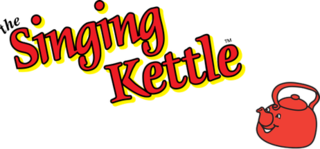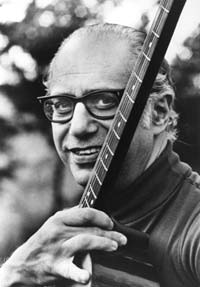
Guy Hughes Carawan Jr. was an American folk musician and musicologist. He served as music director and song leader for the Highlander Research and Education Center in New Market, Tennessee.

The New Lost City Ramblers, or NLCR, was an American contemporary old-time string band that formed in New York City in 1958 during the folk revival. Mike Seeger, John Cohen and Tom Paley were its founding members. Tracy Schwarz replaced Paley, who left the group in 1962. Seeger died of cancer in 2009, Paley died in 2017, and Cohen died in 2019. NLCR participated in the old-time music revival, and directly influenced many later musicians.

Sings For Broadside, alternatively known as Broadside Ballads, Vol. 10, was a 1976 compilation of songs that Phil Ochs had recorded for Broadside Magazine as demonstration recordings or at benefit shows for them. Initially, Ochs had hoped for the magazine to release one single concert, but when the material he presented to them came up far too short for a full LP and not featuring several of his best and well-known numbers, he suggested they splice on whatever they desired. The result was this album, which featured tracks recorded between about 1965 and about 1973.
Victoria Regina Spivey, sometimes known as Queen Victoria, was an American blues singer, songwriter, and record company founder. During a recording career that spanned 40 years, from 1926 to the mid-1960s, she worked with Louis Armstrong, King Oliver, Clarence Williams, Luis Russell, Lonnie Johnson, and Bob Dylan. She also performed in vaudeville and clubs, sometimes with her sister Addie "Sweet Peas" Spivey, also known as the Za Zu Girl. Among her compositions are "Black Snake Blues" (1926), "Dope Head Blues" (1927), and "Organ Grinder Blues" (1928). In 1961, she co-founded Spivey Records with one of her husbands, Len Kunstadt.
Cathy Fink & Marcy Marxer are a musical duo who perform folk, bluegrass and children’s music. They have performed with Pete Seeger, Theodore Bikel, Tom Paxton, Patsy Montana, Riders in the Sky and others. The Washington Area Music Association has recognized the duo with over 60 Wammie Awards for folk, bluegrass, and children’s music.

The Singing Kettle are a folk music and entertainment group from Scotland who perform traditional children's songs, along with live theatre performances. Originally from the village of Kingskettle in Fife, they were formed by established folk singers Cilla Fisher and Artie Trezise, eventually being joined by musician Gary Coupland. In 2012, founding member Fisher retired from performing with the group, and Trezise not wanting to, did the same. Three years later in 2015 the group performed their last live shows as a collective. Trezise who has since split with Fisher, returned in 2019 touring with solo shows.

Dust Bowl Ballads is an album by American folk singer Woody Guthrie. It was released by Victor Records, in 1940. All the songs on the album deal with the Dust Bowl and its effects on the country and its people. It is considered to be one of the first concept albums. It was Guthrie's first commercial recording and the most successful album of his career.

In the Good Old Days (When Times Were Bad) is the third solo studio album by American singer-songwriter Dolly Parton. It was released on February 3, 1969, by RCA Victor. The album was produced by Bob Ferguson. It peaked at number 15 on the Billboard Top Country Albums chart. The album's title track was the only single released and it peaked at number 25 on the Billboard Hot Country Songs chart.
Alice Gerrard is an American bluegrass singer, banjoist, fiddler, and guitar player. She performed as part of a duo with Hazel Dickens, and as part of The Strange Creek Singers and The Back Creek Buddies.
Smithsonian Folkways is the nonprofit record label of the Smithsonian Institution. It is a part of the Smithsonian's Smithsonian Center for Folklife and Cultural Heritage, located at Capital Gallery in downtown Washington, D.C. The label was founded in 1987 after the family of Moses Asch, founder of Folkways Records, donated the entire Folkways Records label to the Smithsonian. The donation was made on the condition that the Institution continue Asch's policy that each of the more than 2,000 albums of Folkways Records remain in print forever, regardless of sales. Since then, the label has expanded on Asch's vision of documenting the sounds of the world, adding six other record labels to the collection, as well as releasing over 300 new recordings. Some well-known artists have contributed to the Smithsonian Folkways collection, including Pete Seeger, Ella Jenkins, Woody Guthrie, and Lead Belly. Famous songs include "This Land Is Your Land", "Goodnight, Irene", and "Midnight Special". Due to the unique nature of its recordings, which include an extensive collection of traditional American music, children's music, and international music, Smithsonian Folkways has become an important collection to the musical community, especially to ethnomusicologists, who utilize the recordings of "people's music" from all over the world.
Elizabeth Ardis Mitchell is an American singer, songwriter and musician. She began her career performing with Lisa Loeb as the duo Liz and Lisa, then founded the indie rock band Ida in 1991, of which she continues to be a member. As a solo artist, she has been recording and performing music for children since 1998.

Happy Traum is an American folk musician who started playing music in the 1950s and became a stalwart of the Greenwich Village music scene of the 1960s and the Woodstock music scene of the 1970s and 1980s. For several years, he studied blues guitar with Brownie McGhee, who was a big influence on his guitar style. Happy is most famously known as one half of Happy and Artie Traum, a duo he began with his brother. They released several albums, including Happy and Artie Traum, Double Back, and Hard Times In The Country. He has continued as a solo artist and as founder of Homespun Music Instruction.

Joseph Glazer was an American folk musician who recorded more than thirty albums over the course of his career. He was closely associated with labor unions and often referred to as "labor's troubadour".

American singer-songwriter Woody Guthrie's published recordings are culled from a series of recording sessions in the 1940s and 1950s. At the time they were recorded they were not set down for a particular album, so are found over several albums not necessarily in chronological order. The more detailed section on recording sessions lists the song by recording date.
Oscar Brand was a Canadian-born American folk singer-songwriter, radio host, and author. He released nearly 100 albums and composed hundreds of songs, among them Canadian patriotic songs, songs of the U.S. Armed Forces, sea shanties, presidential campaign songs over the years, and songs of protest. His discography is extensive.

Moses Asch was an American recording engineer and record executive. He founded Asch Records, which then changed its name to Folkways Records when the label transitioned from 78 RPM recordings to LP records. Asch ran the Folkways label from 1948 until his death in 1986. Folkways was very influential in bringing folk music into the American cultural mainstream. Some of America's greatest folk songs were originally recorded for Asch, including "This Land Is Your Land" by Woody Guthrie and "Goodnight Irene" by Lead Belly. Asch sold many commercial recordings to Verve Records; after his death, Asch's archive of ethnic recordings was acquired by the Smithsonian Institution, and released as Smithsonian Folkways Records.

Suni Paz is an Argentinian singer, songwriter, guitarist, poet, folklorist, translator, and teacher, who has recorded and has been published extensively. Paz is part of the progressive Latin American music movement known as nueva canción.

My Dusty Road is a 4 CD box set of Woody Guthrie music containing 54 tracks and a book. It is a collection of the newly discovered Stinson master discs. It was released by Rounder Records in 2009.
Jeff Place is the Grammy Award-winning writer and producer and a curator and senior archivist with the Smithsonian Center for Folklife and Cultural Heritage. He has won three Grammy Awards and six Indie Awards.

Walter Ferguson Byfield was a Panamanian-born Costa Rican calypso singer-songwriter. He was popularly known as Mr. Gavitt or Segundo, in his hometown of Cahuita.












